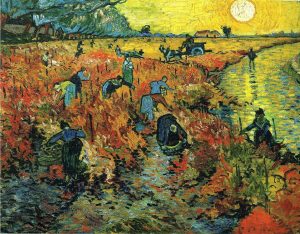Matthew 22: 1-14
This text is used for the Lectionary Year A on October 15, 2017.
 It’s one thing to ask why Jesus had to die. It’s another thing to ask why they killed Jesus. If you want to get a strong sense of why some wanted Jesus dead, read Matthew 21 and 22. Chapter 21 begins with Jesus’ Palm Sunday entry into Jerusalem, where crowds enthusiastically proclaimed “blessed is the one who comes in the name of the Lord.” (21:9) This was followed by Jesus clearing the temple as he told religious leaders they’d turned his Father’s house into a den of robbers, the cursing of a non-fruit bearing fig tree, a seeming symbol of God’s non-fruit bearing people, and an inquisition regarding his own authority that morphed into an uneasy exchange with the religious leaders about the authority of his now dead cousin, John the Baptist. All of this just before Jesus pulls three parabolic arrows from his quiver and aims them squarely between the eyes of the Jewish leadership.
It’s one thing to ask why Jesus had to die. It’s another thing to ask why they killed Jesus. If you want to get a strong sense of why some wanted Jesus dead, read Matthew 21 and 22. Chapter 21 begins with Jesus’ Palm Sunday entry into Jerusalem, where crowds enthusiastically proclaimed “blessed is the one who comes in the name of the Lord.” (21:9) This was followed by Jesus clearing the temple as he told religious leaders they’d turned his Father’s house into a den of robbers, the cursing of a non-fruit bearing fig tree, a seeming symbol of God’s non-fruit bearing people, and an inquisition regarding his own authority that morphed into an uneasy exchange with the religious leaders about the authority of his now dead cousin, John the Baptist. All of this just before Jesus pulls three parabolic arrows from his quiver and aims them squarely between the eyes of the Jewish leadership.
These are parables of judgments. The first concludes with Jesus telling religious leaders that prostitutes and tax collectors were entering God’s Kingdom before them, the second accuses them of rejecting God’s prophets and God’s son, and then just in case he hadn’t been clear enough, Jesus offers them this story of a wedding feast. Some of his parables delivered his meaning slowly, subtly. Not this one. It is intentionally diaphanous. The religious leaders already know “he is talking about them.” (21:45) Now everyone listening should know Jesus’ view of God, God’s preferences and God’s perspective are dangerously different than the religious voices to which they’d become accustomed.


 We live in an era in which we get a daily dose of hard news born in hatred, division and violence. Churches and religious leaders search for words, and communities long for action. Do we have a gospel big enough for this moment?
We live in an era in which we get a daily dose of hard news born in hatred, division and violence. Churches and religious leaders search for words, and communities long for action. Do we have a gospel big enough for this moment?